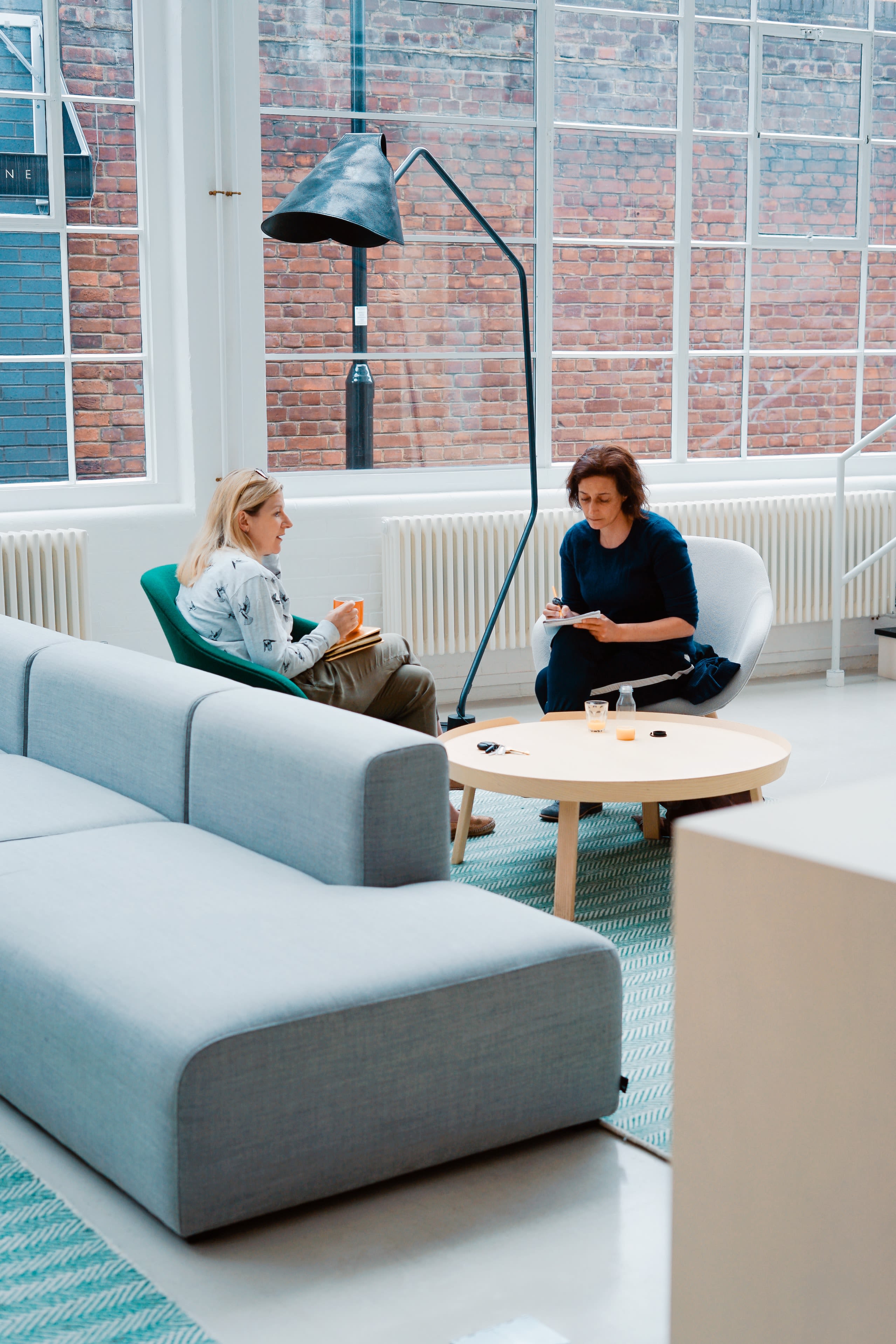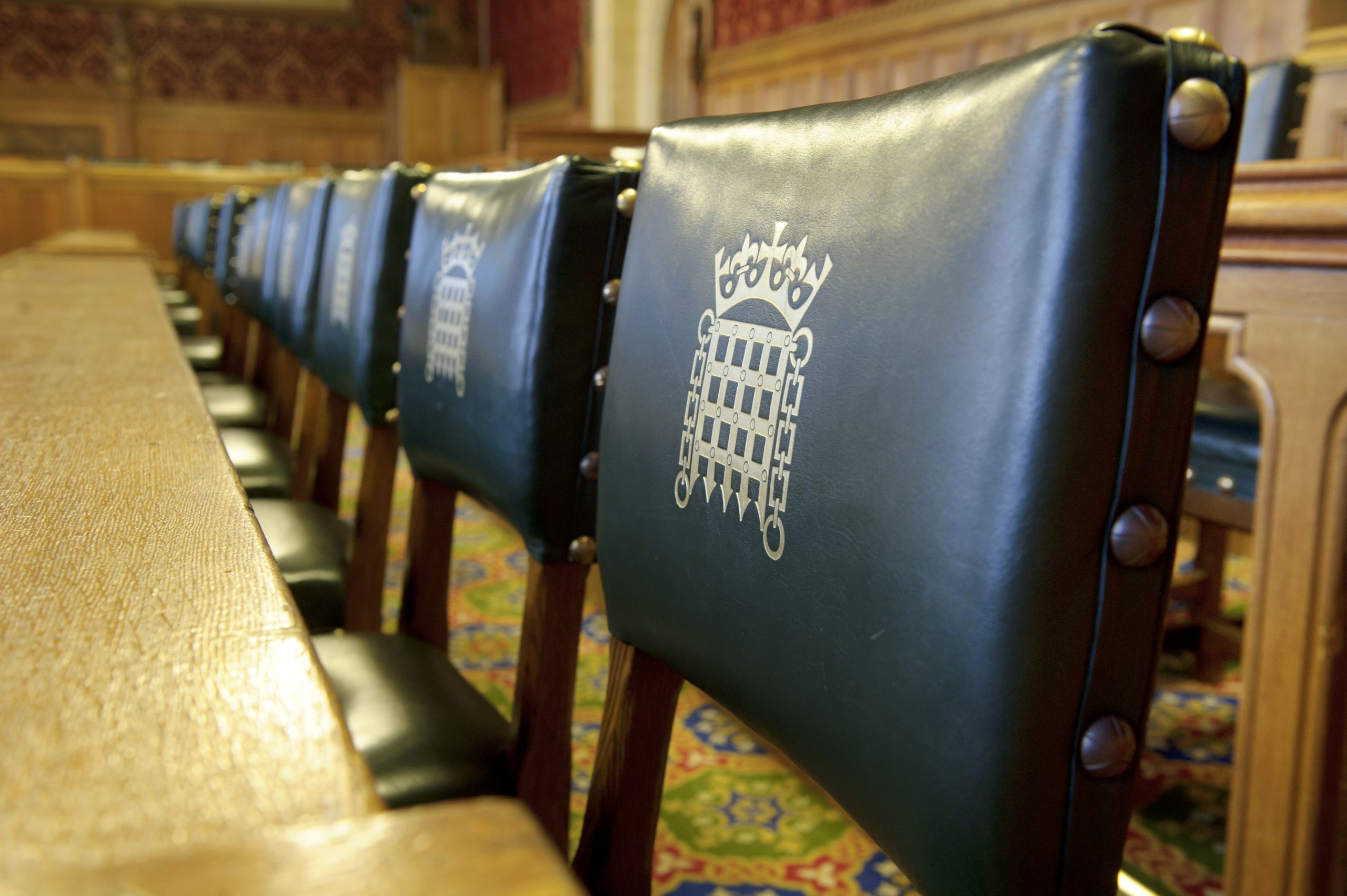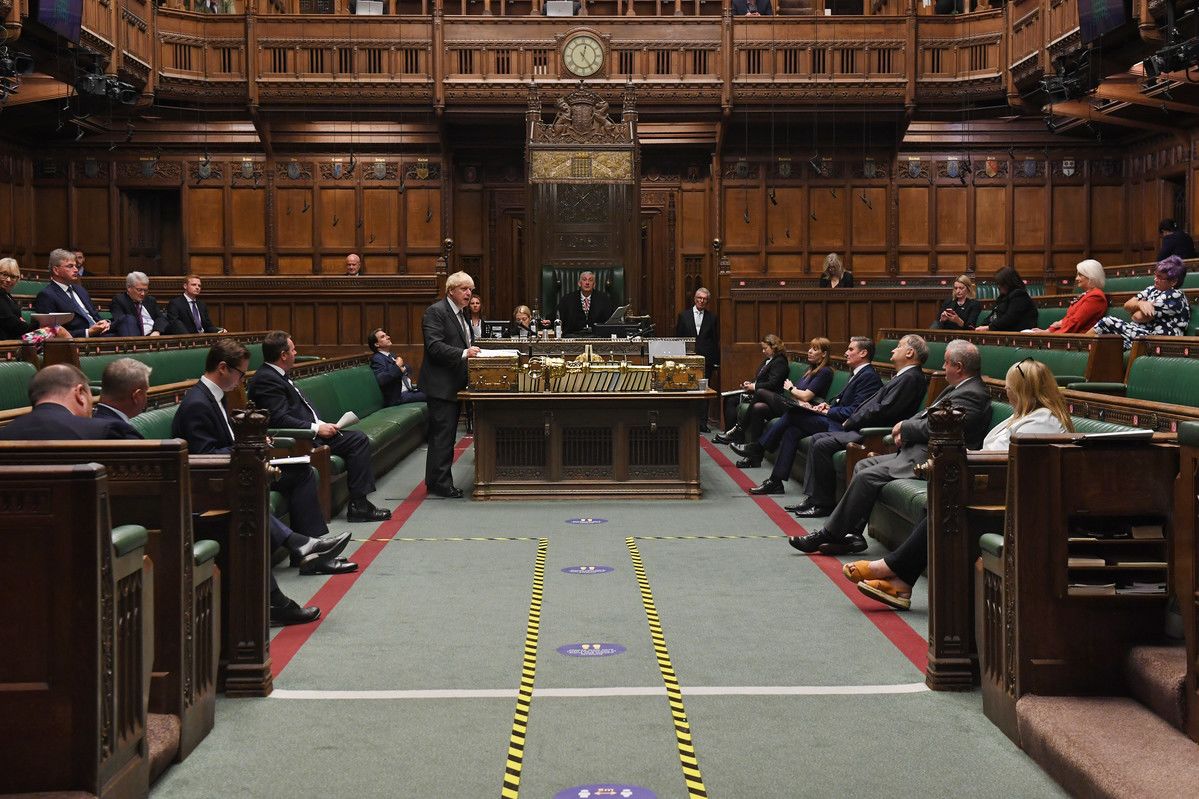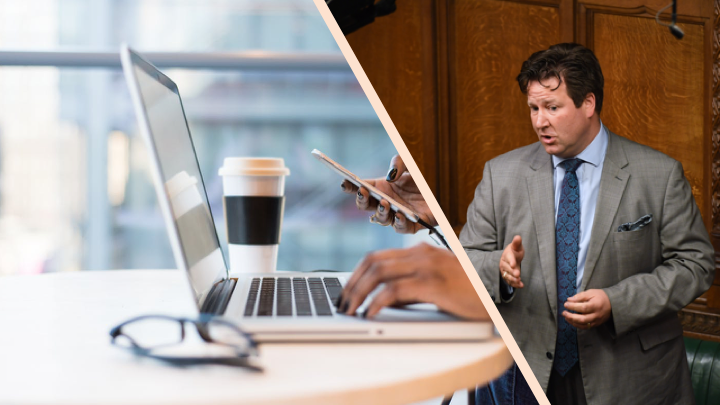Endometriosis in the workplace
How the public contributed to a Parliamentary debate

What is endometriosis?
According to leading charity Endometriosis UK:
"Endometriosis is a chronic and debilitating condition that can cause painful or heavy periods. It may also lead to infertility, fatigue and bowel and bladder problems.
"Around 1.5 million women in the UK are currently living with the condition. It can affect all girls, women, and those assigned female at birth, from puberty to menopause, regardless of race or ethnicity."
Kathryn, Cornwall:
“I had a 7 year wait for diagnosis. From my referral to the hospital, I had a year and a half wait for surgery... I was in constant pain, slept for 3 or 4 hours a day and was unable to care for my son properly, I considered putting him into care. If it wasn't for him, I would have given up on everything.”

Kathryn was writing in response to a social media post from the House of Commons calling for public contributions to a Parliamentary debate. We will return to her story later on.
The MP leading the debate wanted to hear from those living with endometriosis, specifically:
- about their experiences of diagnosis
- what their workplaces had done to support them.
Have you been diagnosed with #endometriosis?
— UK House of Commons (@HouseofCommons) October 23, 2019
How supportive is your workplace?
On 29 October, @AlecShelbrooke will lead a debate on endometriosis and he wants to hear about your experiences.
Click the image to share your story.
Deadline: 12pm, 28 October.
The response
Over 2.6 thousand women responded across Twitter, Facebook and a private survey. There were many common themes which demonstrated how damaging the condition can be:
- Diagnosis often takes years. Many respondents reported doctors dismissing their symptoms and advising taking painkillers
"This disease was dismissed out of many doctors' offices and I felt like it was in my head because I was sent away with ibuprofen and told to get more exercise. It took 7 years to diagnose by which time I had lost the ability to move properly. On my flexible working interviews, I was asked if he should write 'women's problems or period pain'."
- Endometriosis is not widely known about in workplaces, and many respondents felt they had little support from their employers
"Half of my workforce don't know what it is and the other half think it's just stomach pains. Nobody understands or even tries to understand the condition. I work for the biggest postal service in the UK and although they pay full sick pay the pressure they put on you when you're sick is unreal."
- Many reported losing their jobs due to workplace policies on absence and illness
"I have been fired from all my jobs, my last workplace bullied me and mocked my illness, nothing was done via HR and I was made to leave instead. I have never had support from any workplace."
- Many described the negative effects of the condition on their mental health, relationships and wider circumstances
"I have lost jobs, friends and even boyfriends because they could not cope or understand. I have been unable to get any financial help when out off work due to pain and still have to fight to make healthcare professionals understand, which has led to depression which I have managed to overcome, but I’m still having to fight everyday"
The contributions were summarised into a brief for Alec Shelbrooke - the MP leading the debate.
It featured the main themes to emerge, and quotes from those who had contributed.
Grateful to @HouseofCommons digital engagement staff for promoting my debate and collating an overwhelming number of responses from women living with and suffering from #endometriosis across the U.K. pic.twitter.com/QPGYWWQDwB
— Alec Shelbrooke MP (@AlecShelbrooke) October 29, 2019
The debate
29 October 2019
Westminster Hall

Alec Shelbrooke read out four of the stories, and covered all of the key themes which emerged from the contributions.
An overview of the response to his debate, and a quote from a contributor
An overview of the response to his debate, and a quote from a contributor
Several other MPs from across the political parties spoke during the debate. They told their own stories of living with similar conditions, and shared the experiences of their friends, families and constituents who had endometriosis.
Now is the time to take women's health seriously & work together to help with #endometriosis & #endometriosisatwork @EndometriosisUK, here is my latest statement in #Westminster earlier today...(full statement https://t.co/kMUABm37hZ) pic.twitter.com/fZ13WxkdM8
— Emma Hardy MP (@EmmaHardyMP) October 29, 2019
Very glad that MPs are discussing endometriosis and other issues to do with periods because it is so important to end the taboo. @LouHaigh was particularly brave speaking about her own experiences. https://t.co/6BeplgV5Ua
— Nicola Bartlett (@NicolaRBartlett) October 29, 2019
The debate gained national attention through celebrities like Emma Barnett and leading charity Endometriosis UK.
Thousands watched the Facebook livestream and some members of the public attended in person:
A lot of woman trusted me with their period stories for the book. And today their issues were raised in the House of Commons- aka the legislative chamber #change #periodpride #endometriosis https://t.co/XqkLRI9amM
— Emma Barnett (@Emmabarnett) October 29, 2019
Am crying my way through listening to it. It is SO unbelievable to hear people taking it seriously at long long last ❤️
— Rebecca J Burman (@Mrsjustpassing) October 29, 2019
Thank you @endometriosisuk for your part in this x
Couldn’t have asked to go to Parliament today with a better group of people. We really enjoyed the debate and couldn’t be happier. Thank you to everyone who has helped us. #endometriosis @AlecShelbrooke @DrLarisaTV @alexa_chung @amessd_southend @JackieDP pic.twitter.com/TEDIODrnjO
— Keisha Meek (@keisha_meek) October 29, 2019
Here are some highlights of the debate, and statements from some of the MPs who spoke:
- Read a full transcript of the debate on Hansard
- Watch it on Facebook
- Read a House of Commons Library briefing which was prepared for the debate.
Alec Shelbrooke MP gives his thoughts after the debate
Alec Shelbrooke MP gives his thoughts after the debate
The Government's response

Debates in Westminster Hall are always attended by a minister who gives a response on behalf of the government.
In his speech, Minister for Disabled People Justin Tomlinson MP stated that:
- The Office for Disability Issues has recently moved to the Cabinet Office, from where it can ensure a joined-up approach across other Government departments regarding disability issues.
- NHS England has developed a service specification for severe endometriosis under the specialised commissioning area of complex gynaecology.
- The Equality Act 2010 protects workers from unfair dismissal and discrimination, and more must be done to raise awareness of hidden disabilities.
- The Government are committed to promoting flexible working arrangements with employers, reducing barriers to employment for those with health conditions.
- Read his full response on Hansard.
The Minister for Disabled People acknowledges the public contributions to the debate
The Minister for Disabled People acknowledges the public contributions to the debate
Endometriosis in the House of Commons
Relevant questions, answers, mentions and consultations since the debate

Endometriosis has been raised by MPs several times in the House of Commons Chamber since the last debate:
Find other examples by searching Hansard - the official report of all parliamentary debates.
Find other examples by searching Hansard - the official report of all parliamentary debates.
Written questions and answers
The Government has also updated MPs by responding to several written questions on endometriosis. Some of the topics include:
- Updates to training programmes to ensure healthcare professionals understand the condition
- Information about funding for research
- The guidance currently followed by the NHS in treatment and diagnosis.
See parliament.uk for further questions, answers and other relevant material on endometriosis.
Call for evidence: Women's Health Strategy
The Department for Health and Social Care have launched a consultation to help inform the development of the Government’s Women’s Health Strategy.
On 8 March 2021 Health Minister Nadine Dorries MP made a statement to the House of Commons introducing the consultation, and encouraging people to respond:
"Today is International Women’s Day, and on this important day we must acknowledge that for generations women have lived with a healthcare system that is designed by men, for men. As a result, women have been underrepresented in research.
"Despite women making up 51% of the population, we still know little about some female-specific issues, and there is less evidence and data on how conditions affect women and men differently [...]
"If we are to tackle taboos and ensure that women’s voices are heard, the provision of high-quality information and education is imperative. To give a timely example, March is Endometriosis Awareness Month. Endometriosis is a common condition affecting one in 10 women of reproductive age, yet the average diagnosis time is seven to eight years.
"It greatly saddens me to hear how so many women think, or worse, are told that the debilitating pain and symptoms that they are experiencing are normal or imagined and that they must live with it."
"The call for evidence is about making women’s voices heard. We want to hear from women from all backgrounds and will be inviting all organisations and researchers with expertise in women’s health to provide written evidence, too.
"We will respond to the call for evidence after the summer and we aim to publish the strategy later this year."
Watch her full statement on parliamentlive.tv or read it on Hansard.
Find out more and submit evidence to the consultation: Women's Health Strategy: Call for evidence (submission deadline: 30 May 2021).
Kathryn's story
We began with Kathryn, who spoke of how endometriosis had affected her life.
Alec Shelbrooke read her story out in full during the debate:

On being quoted in Parliament:
"To be honest with you, I didn’t even expect it to be read, let alone read out. For me, it was quite empowering because I’ve obviously had years and years of not being listened to, or being dismissed, or being told there was nothing wrong with me...Having a voice in Parliament has made me feel definitely more empowered to try harder to be heard, to be listened to. It’s given me confidence."

That confidence has since led her to raise the issue with her employer, and put herself forward as a woman's workplace health champion.
"It’s definitely motivated me to do more. If Alec can talk about it to those MPs, then I can talk about it to my employers and people at work... I would like to help them get the Endometriosis Friendly Award and I would like to put myself forward for women’s health champion in the school as well. Having my story read out in Parliament has certainly helped me to feel I can probably do that"

Talking more openly about her experiences has given her colleagues the confidence to speak out too:
"It’s kind of opened me up a bit more. Every female member of staff I've opened up to about my experience has talked to me about similar issues with their own menstrual health. It's been really good to be able to talk openly with each other."

Since then, Kathryn has continued to advocate for those living with endometriosis, this is her story:
She has appeared several times in local and national media:
- Totnes mum says thousands of women with endometriosis still fighting to be heard 22 October 2020, Devon Live
- INTERNAL BATTLE Endometriosis ate through all four layers of mum’s bowel leaving her unable to eat and in excruciating pain 30 May 2020, The Scottish Sun
- Cornwall mum speaks candidly about how endometriosis ended her teaching career and how her son is a 'miracle' 17 March 2018, Cornwall Live
- How Endometriosis treatment at Royal Cornwall Hospital transformed Kathryn Davidson’s life 7 March 2018, Royal Cornwall Hospital NHS
- 'I've lost my fertility, I've lost organs' - living with endometriosis 16 March 2021, ITV Westcountry.
She has also worked with her local MP to campaign for those living with endometriosis:
- Cherilyn Mackrory MP takes part in #WalkforEndo 9 August 2020, Cherilyn Mackrory MP
The UK Parliament is not responsible for any information from external sources linked to from this site. Any links to external websites are outside our control and therefore we cannot accept responsibility for the accuracy of the information they hold. See our disclaimer for more information.
Get involved
Upcoming debates
You can see upcoming debates and other parliamentary business on our What's on page.
You can watch all debates on parliamentlive.tv.
Contact your MP
When you or people living in your area are affected by decisions made by the UK Parliament or by the Government, you can contact your MP. MPs represent all the people in their local area, whether they vote for them or not.
Your UK Parliament newsletter
Sign up for a regular newsletter packed with the latest info on free activities online and around the UK to help you get involved and make a difference.
Visit Parliament
Parliament is currently closed to visitors due to the Covid-19 pandemic, but you can still attend a free tour or a talk virtually – visit our online talks and events page for more information.
Education resources
Visit our learning pages for award-winning free education services for schools, colleges, communities and home educators.
Feedback
This exercise is run by Parliament's Digital Engagement team. Please complete our two-question survey about this engagement activity.
More stories like this
- Debate: Maternal mental health
- Debate: Long covid
- Mumsnet in the House of Commons


